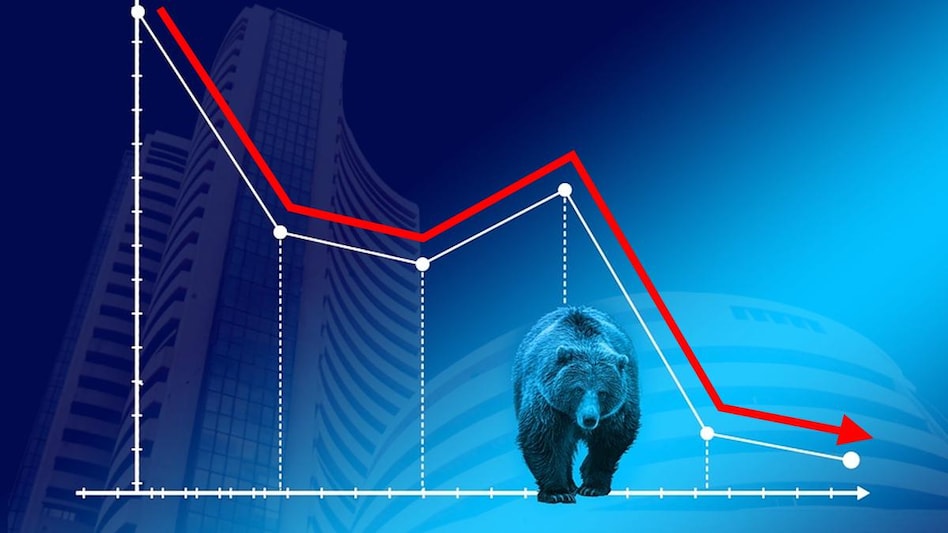Trending Stocks Ticker by Stock Target Advisor
Big Crash Coming?
Many Big Name Investors recently issued a warning expressing belief that the next bear market could potentially be one of the “worst in a lifetime.” The impending crash could surpass the severity of the 2008 financial crisis, and possibly rival the infamous 1929 crash.
Analyst’s concern regarding a severe market downturn may stem from the analysis of various factors influencing the global economy and financial markets. These factors could include elevated debt levels, geopolitical tensions, overvalued assets, potential asset bubbles, or systemic risks within the financial system. Market analyst’s may be drawing parallels to the 2008 crisis, which was characterized by a combination of excessive leverage, a housing market collapse, and subsequent ripple effects across the global financial system.
S&P 500 Crash?
The current long term technical picture of the S&P 500 has a bearish outlook, indicating that the index may potentially drop below the 2000 level, which would test the threshold it reached in 2016. Furthermore, if the market were to break that level, the statement suggests that the index could further decline to the 1000 level.
It’s important to note that predicting the future direction and levels of the stock market is highly speculative and challenging, as it depends on numerous unpredictable factors such as economic conditions, geopolitical events, market sentiment, and investor behavior. Market movements are influenced by a complex interplay of these factors, making precise predictions difficult.
A drop in the S&P 500 below the 2000 level, followed by a further decline to the 1000 level, would represent a significant downturn in the market. However, it’s crucial to consider such statements in the context of the source and the specific analysis or methodology used to arrive at these predictions.
Investors and market participants should exercise caution and consider multiple viewpoints, expert opinions, and fundamental analysis before making any investment decisions. It’s advisable to consult with financial advisors or professionals who can provide personalized guidance based on individual circumstances and risk tolerance.
Catalyst at Play which Could cause a Crash!
- Global Economic Downturn: A severe global economic recession or depression could significantly impact financial markets. Factors such as a global debt crisis, significant trade disruptions, or a collapse in major economies could trigger a widespread market crash.
- Financial System Instability: A breakdown in the financial system due to systemic risks, such as excessive leverage, unsustainable asset bubbles, or failures in key financial institutions, could lead to a major market crash. This could be exacerbated by a loss of confidence in the banking sector or a crisis in the credit markets.
- Geopolitical Events: Major geopolitical events, such as geopolitical conflicts, trade wars, or acts of terrorism, can disrupt global markets and investor sentiment. Political instability or the breakdown of international relations could lead to a loss of trust in the markets and trigger a severe downturn.
- Bursting of Asset Bubbles: If there are significant bubbles in certain asset classes, such as housing, stocks, or cryptocurrencies, a sudden correction or bursting of these bubbles could lead to a market crash. Rapid declines in asset prices can trigger panic selling and a cascading effect across the market.
- Natural Disasters or Pandemics: Large-scale natural disasters or pandemics can have far-reaching economic and financial consequences. The disruption of supply chains, loss of infrastructure, and significant human and economic toll can negatively impact markets and investor confidence.
- Regulatory or Policy Failures: Ineffective regulation or policy failures in areas such as financial oversight, monetary policy, or fiscal management could contribute to a market crash. Missteps or inappropriate responses by policymakers could amplify market volatility and exacerbate downturns.
Black Swan cause next Crash?
A “Black Swan” refers to an extremely rare and unexpected event that has a severe and widespread impact on the market. A Black swan event is characterized by their unpredictability and the significant deviation from normal market expectations. They often catch market participants off guard, as they are not anticipated or factored into traditional risk models or forecasts. These events can have far-reaching consequences, leading to substantial market volatility, systemic risks, and eventual market crashes.
Black swan events can arise from various sources, including geopolitical shocks, financial crises, natural disasters, technological disruptions, or unexpected regulatory changes. Some notable examples of black swan events in recent history include the 2008 global financial crisis, the 9/11 terrorist attacks, and the COVID-19 pandemic.
The impact of a black swan event on the markets can be swift and severe. It can lead to sharp declines in asset prices, liquidity shortages, increased market volatility, and a loss of investor confidence. Black swan events often expose vulnerabilities within the financial system and can trigger a chain reaction of negative effects that reverberate through various sectors and economies.
Due to their unpredictable nature, it is challenging to prepare for or mitigate the impact of black swan events. However, risk management practices such as diversification, stress testing, and scenario analysis can help investors and institutions better understand and manage their exposure to extreme and unexpected market events.
Recent Examples of a Black Swan Event:
- Global Financial Crisis (2008): The collapse of Lehman Brothers in September 2008 marked a pivotal event in the global financial system. The crisis, which originated from the subprime mortgage market in the United States, triggered a widespread credit crunch, leading to a severe recession and a sharp decline in global stock markets. The magnitude and cascading effects of the crisis were largely unanticipated, making it a prime example of a black swan event.
- 9/11 Terrorist Attacks (2001): The terrorist attacks on September 11, 2001, in the United States had profound implications for financial markets. The attacks resulted in the closure of the New York Stock Exchange (NYSE) and other major exchanges, causing significant disruptions to global financial markets. The attacks also led to increased geopolitical tensions and uncertainty, causing market volatility and investor panic.
- COVID-19 Pandemic (2020): The outbreak of the novel coronavirus and the subsequent global pandemic had an unprecedented impact on the world economy and financial markets. The rapid spread of the virus forced governments to implement strict lockdown measures, leading to widespread business closures, supply chain disruptions, and a sharp decline in economic activity. Stock markets experienced extreme volatility, with major indices experiencing significant declines in a short period. The pandemic was unexpected and caught many market participants off guard, making it a black swan event.




































